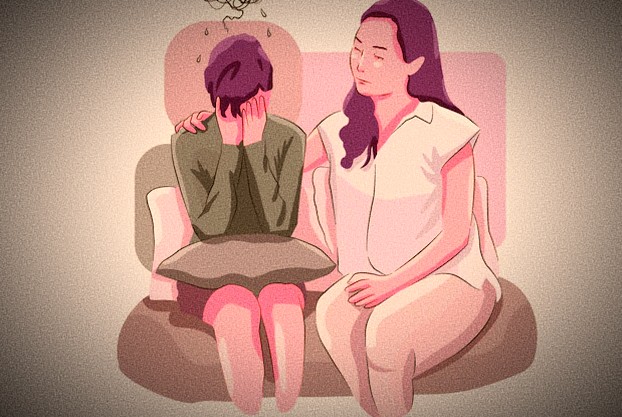Disasters are the unscheduled guests of modern life—sometimes fashionably late, but always showing up. From earthquakes that shake the ground to floods that drown the daily grind, chaos has become a recurring character in our globalized, industrialized drama.
In 2023 alone, natural disasters caused over $313 billion in damages worldwide, with climate change and human error sharing the spotlight.
And if nature's not throwing a tantrum, we’ve got human-made horror: terrorism, shootings, and political unrest. It’s a sobering fact—more than 8,000 terrorist incidents were recorded globally in 2022.
While we can build smarter cities and install early-warning systems, completely dodging disaster is like trying to dodge rain with a sieve. In today’s tangled web of modern “progress,” learning to survive the storm is part of the survival kit.
Trauma counselling in disaster management involves assessment, planning, and treatment, but the scope is generally much more specific. Although this specialized area of work is not usually the same as other types of counselling, it is crucial for the trauma counselling profession because of its significance to the communities it serves and the people dealing with the fallout from tragedies.
It doesn't always mean that someone isn't still suffering from their experience just though they are receptive, functioning, and able to communicate. Being emotionally overpowered is one of the most typical signs of post-traumatic stress.
Recognize that survivors are ordinary individuals under extraordinary circumstances. It's important to remember this problem. To address the following issues, it is necessary to validate their emotions throughout therapy:
- Becoming mentally ill,
- Substance use,
- Survivor's guilt,
- Fear of losing control on overwhelming emotions,
- Death wishes and suicidal ideas.
Despite how straightforward, it may seem, having a trained counselor talk to survivors about their feelings is a crucial therapeutic step. By expressing their feelings, survivors can get closer to embracing their own reactions and realizing that it's acceptable to feel disoriented, exposed, defenseless, and all the other emotions that might come along with a horrific experience.
Every time an incident that sets off emotional upheaval and/or significantly disrupts your everyday life occurs, whether it's immediately after it or during it, you should seek trauma counselling.
Examples of crises include (but are not limited to) witnessing domestic abuse, losing a loved one, suffering a natural catastrophe or widespread damage, becoming pregnant unexpectedly, being the victim of a home invasion or robbery, being assaulted, harassed, or bullied, or losing your job.
There are further physical and psychological indicators that it may be appropriate to seek trauma counselling if you suffer a traumatic incident. Among these indicators are:
- Dizziness
- Fear of self-harm or harming loved ones
- Feeling overwhelmed
- Irritability
- Confusion
- Depression
- Disorientation
- Memory loss or unwanted memories
- Nausea
- Numbness
- Poor sleep
- Suspicion
- Tremors
- Volatile emotions
- Rapid heart rate
- Shock
- Substance use
Another Light Counselling, a mental health organization that specializes in trauma counselling in disaster management, gender, sexuality, addiction, and kink-affirmative therapy, is one such organization that understands the grave effects trauma has on people.
Counsellors assist clients in choosing a suitable treatment that will aid in their trauma recovery, even though individual treatment may differ from patient to patient. Counsellors can utilize a variety of therapies to support their patients, some of which are listed below.
- Cognitive Behavioral Therapy: With cognitive behavioral therapy, patients can learn how their ideas about trauma exacerbate their PTSD symptoms and learn to recognise negative sensations and thoughts about the incident.
- Exposure Therapy: Counsellors who use exposure therapy develop their ability to help patients learn to manage their thoughts and feelings in the wake of the traumatic event.
- Eye Movement Desensitization and Reprocessing: EMDR is a psychotherapy approach that was developed in the 1980s to lessen the suffering brought on by traumatic events.
Here are our 4 R’s of trauma counselling in disaster management:
- REALISE
Realizing and comprehending the effects of trauma is necessary for this. This encompasses not just how trauma affects the survivor but also how it affects their family and communities.
- RECOGNIZE
It's crucial to recognize the symptoms of trauma, which extend beyond the victim. Family members, employees, and other participants are included.
- RESPOND
This entails fusing the theories and information related to trauma policies, practices, and processes.
- RESIST
It is crucial to avoid re-traumatizing the patient while they are receiving treatment.
Trauma counselling in disaster management not only offers support, but also aids clients in learning coping mechanisms to handle the problem at hand.
In this approach, the client is not only taught these skills; they are also assisted in making a commitment to continue using them in the future. A trauma therapist might suggest methods or way of living adjustments to lessen these symptoms so you can continue about your day. Simple techniques like journaling, exercise, food adjustments and meditation can reduce the effects of trauma.

